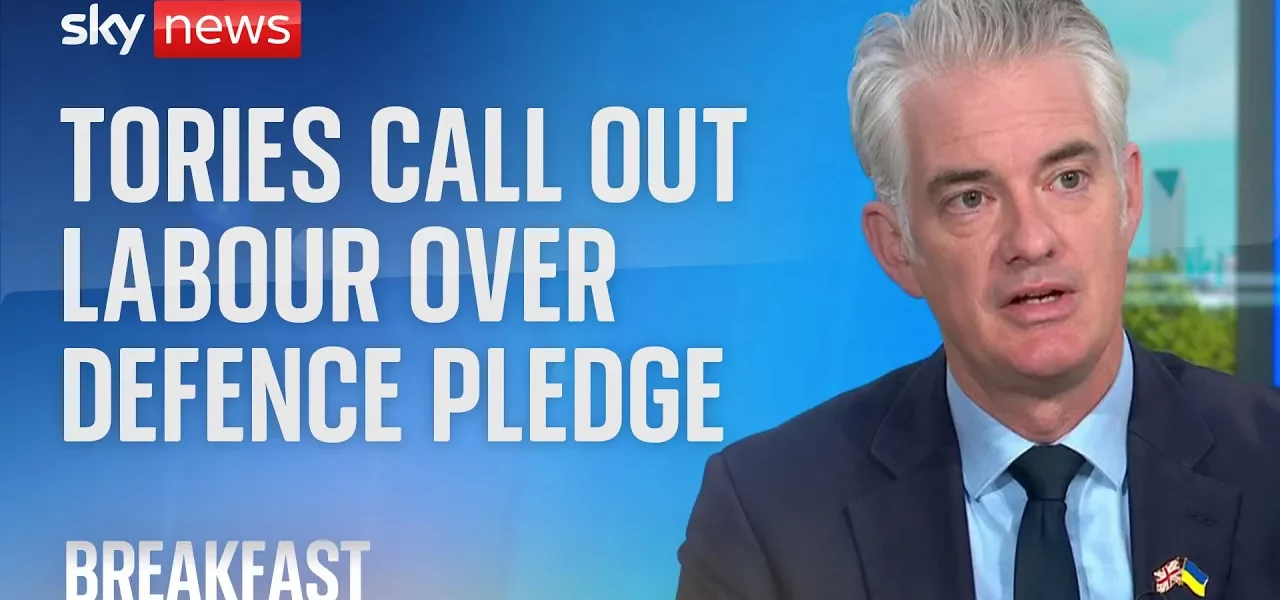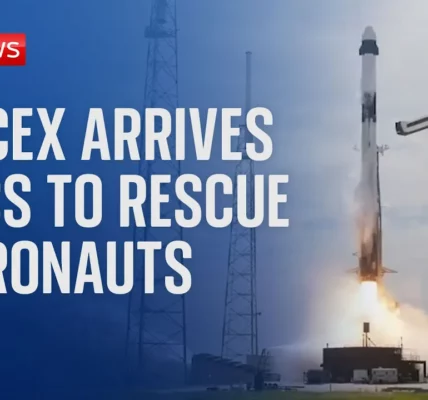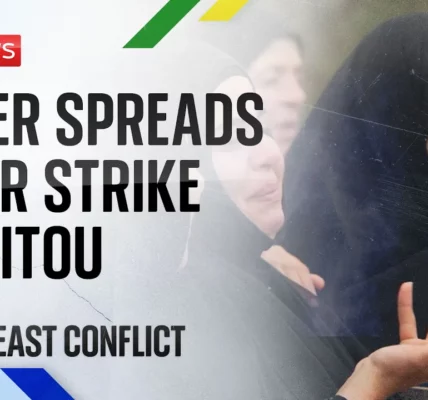Shadow Defense Secretary James Cartage Discusses NATO Funding and UK Defense Policy

In this article, we delve into an insightful conversation with Shadow Defense Secretary James Cartage, highlighting crucial discussions surrounding NATO funding, military accommodation issues, and the upcoming leadership decisions within the Conservative Party. This comprehensive analysis covers the implications of current defense strategies and future political dynamics.
Introduction
James Cartage, the Shadow Defense Secretary, recently spoke about the critical state of NATO funding, particularly in relation to support for Ukraine and other allied nations. The discussions are taking place against the backdrop of a gathering of political leaders, including President Zelensky and German officials, at Blenheim. The focus is on ensuring continued support for Ukraine amidst potential funding cuts from Germany, as well as addressing pressing issues within the UK’s armed forces accommodation and broader defense spending strategies.
NATO Funding and Support for Ukraine
During the conversation, Cartage emphasized the importance of NATO partners maintaining robust financial support for Ukraine. He pointed out that Germany’s discussions around funding cuts could have significant implications for military aid to Ukraine.
Current Funding Situation
Cartage expressed hope that NATO allies would continue to provide generous support, noting that the potential decrease in funding might be offset by reallocating resources from frozen Russian assets. He stated:
- “We stood by Ukraine early and convened other nations to secure necessary support.”
- “Germany is a key player, and it is vital that we remain resolute in backing Ukraine.”
Implications of Funding Cuts
If Germany were to cut funding, it could lead to:
- Reduced military assistance to Ukraine, impacting its defense capabilities.
- Strain on NATO unity, as member nations may interpret funding decisions differently.
- Potential geopolitical shifts if Ukraine’s support diminishes.
Armed Forces Commissioner Discussion
The conversation also touched on the proposal for an Armed Forces Commissioner, which aims to provide independent advocacy for military personnel regarding various issues, including accommodation.
Importance of the Commissioner Role
Cartage acknowledged the necessity of addressing accommodation issues within the armed forces, highlighting that many facilities do not meet modern living standards and suffer from problems such as damp and mold.
Concerns Over Funding
He raised concerns about the effectiveness of a commissioner without adequate funding to address these issues. Key points included:
- The need for a clear timeline on achieving the proposed 2.5% defense spending target.
- The importance of ensuring that the Ministry of Defense has the resources to address accommodation issues adequately.
Defense Spending and Future Leadership
Cartage emphasized the need for clarity on defense spending, particularly regarding replenishing munitions stockpiles that have been depleted due to support for Ukraine. He discussed the previous government’s commitment to reaching a 2.5% defense spending target and the implications of not having a clear timeline.
Challenges Ahead
With a defense review underway, there are significant uncertainties surrounding future funding:
- The lack of a definitive timeline for reaching the 2.5% target could hinder military readiness.
- Decisions regarding ammunition purchases and overall military capabilities are at risk without assured funding.
- Uncertainty could lead to difficult choices within the Ministry of Defense, potentially compromising military effectiveness.
Upcoming Leadership Decisions
As the Conservative Party looks towards future leadership, Cartage noted the importance of selecting a leader who can effectively challenge the opposition and resonate with a broader voter base. He stated:
- The party must take the time to analyze recent electoral results.
- Finding a leader who can appeal to diverse demographics while upholding conservative principles is crucial.
Conclusion
James Cartage’s insights reveal the intricate interplay between international defense commitments, domestic military issues, and the political landscape within the UK. As NATO partners deliberate on funding and support for Ukraine, the UK must navigate its defense spending challenges and prepare for future leadership transitions. Engaging in these discussions is vital for maintaining the integrity of the armed forces and ensuring that the UK remains a steadfast ally in global defense efforts. For more insights on defense policies and political dynamics, visit our related articles on military strategy and NATO relations.
“`




